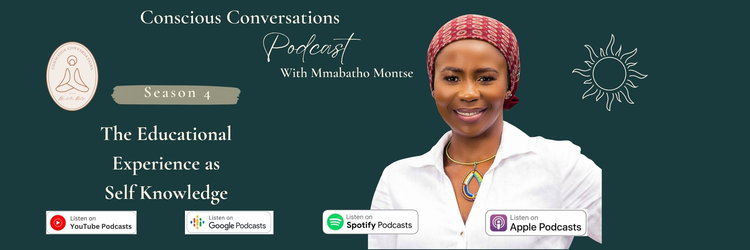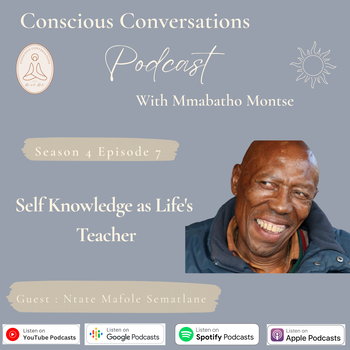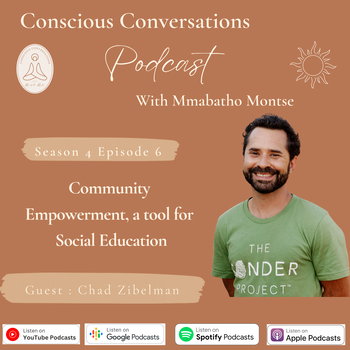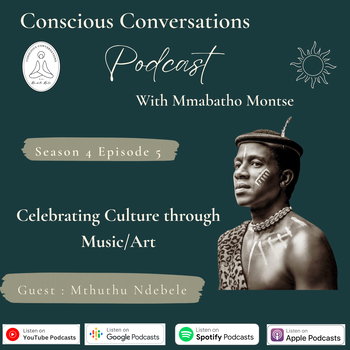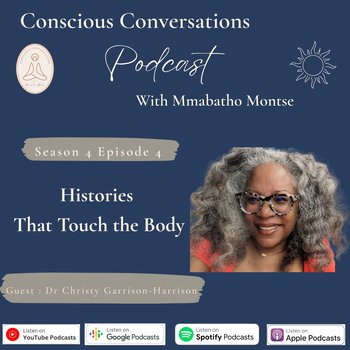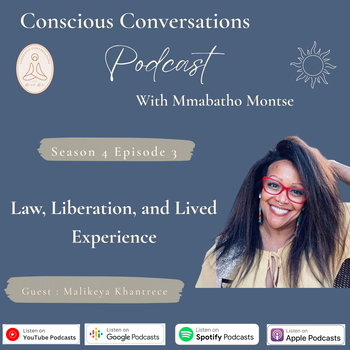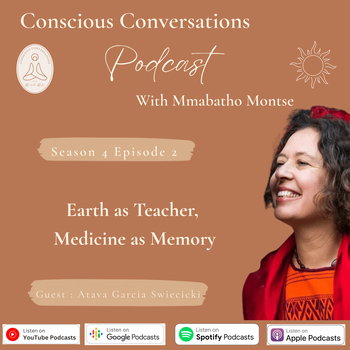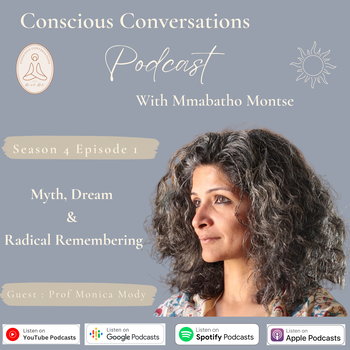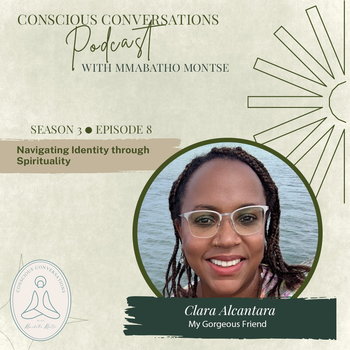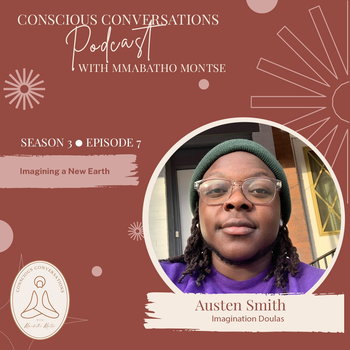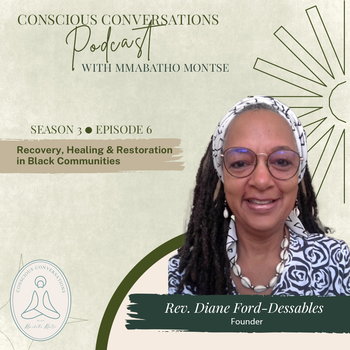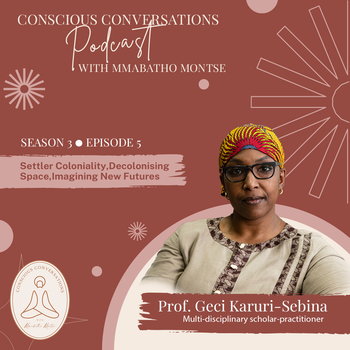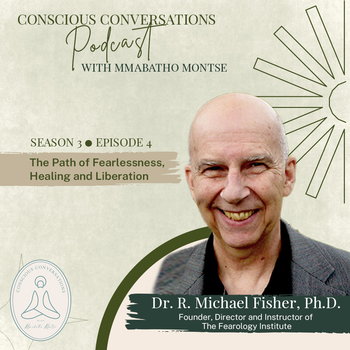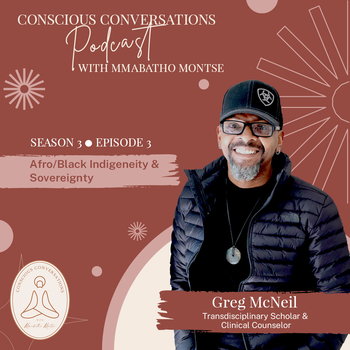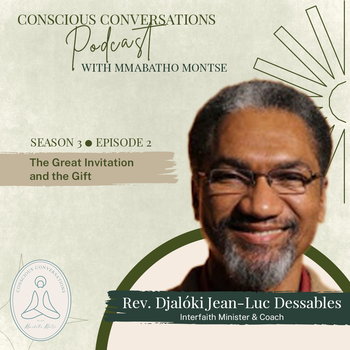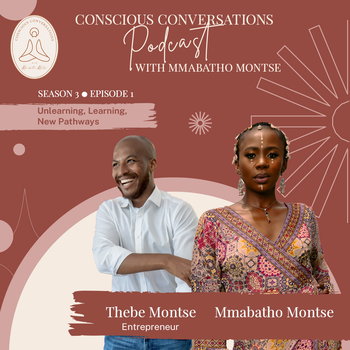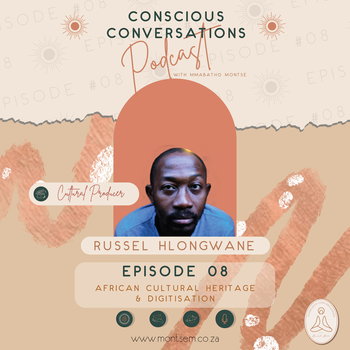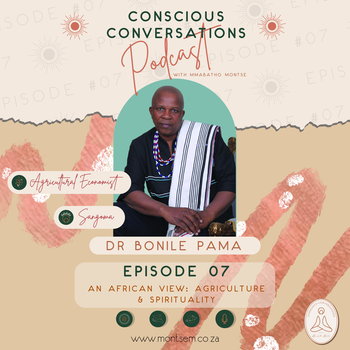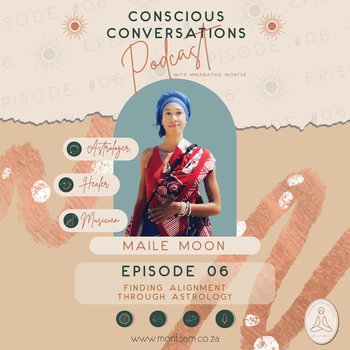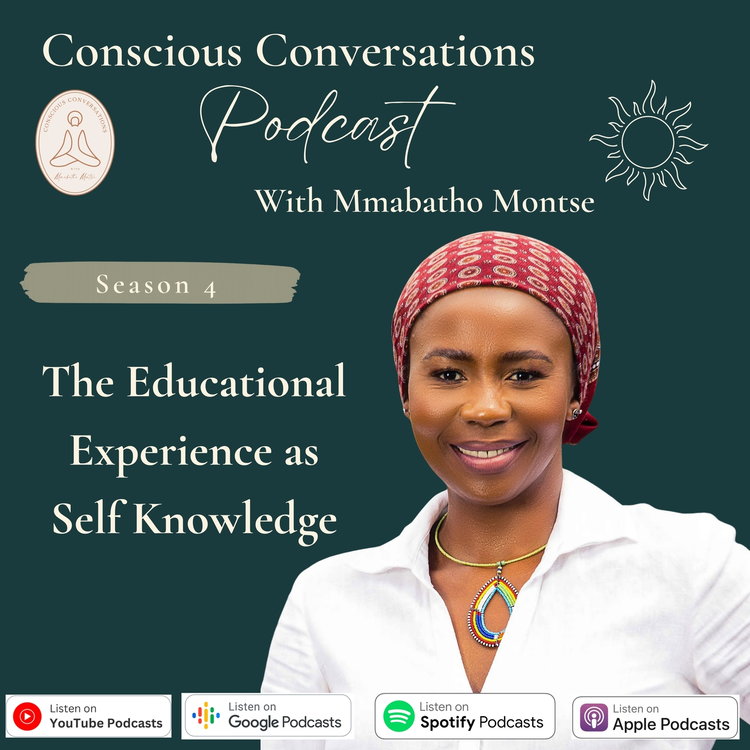
Conscious Conversations with Mmabatho Montse
Season 4 of Conscious Conversations unfolds as a living, transdisciplinary curriculum, weaving Africana Womanist eco-metaphysics, mythological studies, Black feminist geographies, Indigenous Knowledge Systems, and Futures Literacy. Each dialogue is a portal into learning as becoming—an initiation into memory, healing, and self-knowledge.
We begin with Prof. Monica Mody, whose work in decolonial and Indigenous epistemologies reframes education as initiation, where myth, dreams, and cycles of birth–death–rebirth act as sacred technologies of transformation. With Atava Garcia Swiecicki, we deepen this arc through Earth-rooted teachings, honouring plants, ancestral medicine, and ecological consciousness as archives of cultural and cellular repair.
In conversation with Malikeya Khantrece, we confront law, coloniality, and historical amnesia, reimagining reparations as spiritual and ancestral reckoning. Dr. Christy Garrison-Harrison traces how violence is inscribed onto the Black body and how ancestral work becomes resistance and reconstitution. With Mthuthu Ndebele, we turn to music as ancestral offering, and with Chad Zibelman, to frameworks of co-learning and relational accountability.
The season closes with Riel Miller on Futures Literacy, resonant with ponelopele—the Sotho-Tswana ethic of ethical foresight. Rather than prediction, it is a forward gaze rooted in ancestral wisdom, guiding us to live into uncertainty with clarity and presence.
We begin with Prof. Monica Mody, whose work in decolonial and Indigenous epistemologies reframes education as initiation, where myth, dreams, and cycles of birth–death–rebirth act as sacred technologies of transformation. With Atava Garcia Swiecicki, we deepen this arc through Earth-rooted teachings, honouring plants, ancestral medicine, and ecological consciousness as archives of cultural and cellular repair.
In conversation with Malikeya Khantrece, we confront law, coloniality, and historical amnesia, reimagining reparations as spiritual and ancestral reckoning. Dr. Christy Garrison-Harrison traces how violence is inscribed onto the Black body and how ancestral work becomes resistance and reconstitution. With Mthuthu Ndebele, we turn to music as ancestral offering, and with Chad Zibelman, to frameworks of co-learning and relational accountability.
The season closes with Riel Miller on Futures Literacy, resonant with ponelopele—the Sotho-Tswana ethic of ethical foresight. Rather than prediction, it is a forward gaze rooted in ancestral wisdom, guiding us to live into uncertainty with clarity and presence.

